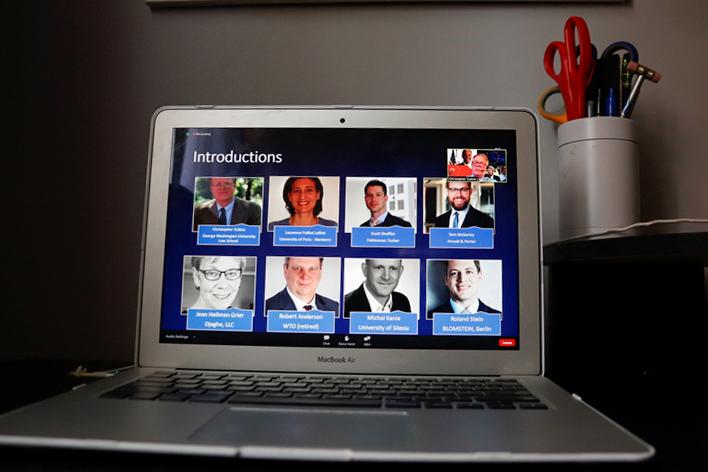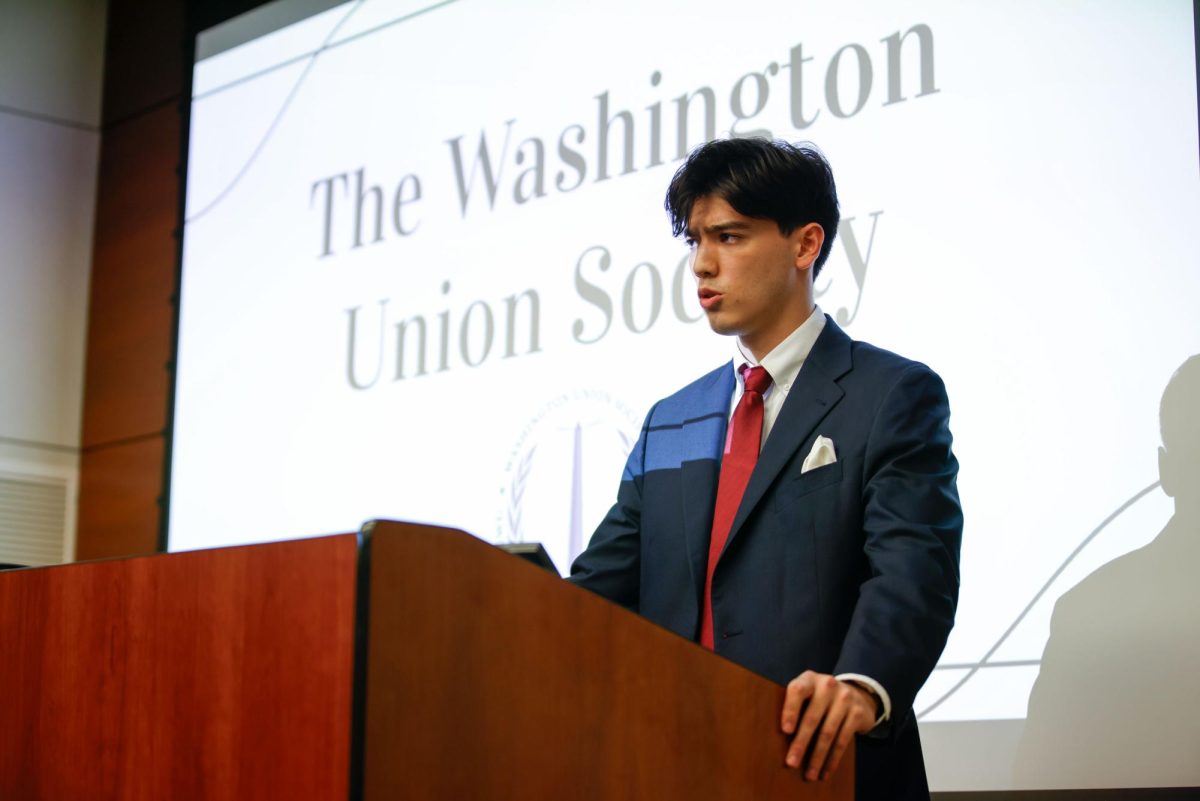The law school hosted a webinar on the 2020 presidential candidates’ views toward emerging trade barriers and cybersecurity with a panel of trade experts Thursday.
Christopher Yukins, a professor of law, moderated the discussion, which was hosted by GW Law’s Government Procurement Law Program. Speakers addressed a recent series of protectionist trade policies like the U.S. ban on the Chinese technology company Huawei, U.S. Department of Defense’s Cybersecurity Maturity Model Certification and President Donald Trump and Democratic presidential candidate Joe Biden’s views on “Buy American” requirements, as well as emerging protectionism in the European Union.
Jean Heilman Grier, a former procurement negotiator at the Office of the U.S. Trade Representative, discussed the Trump administration’s recently implemented Buy American plan for procuring essential medicines and supplies needed to fight COVID-19.
She said the Trump administration has vigorously pursued Buy American policies but encountered difficulties securing sufficient amounts of medical supplies in April.
“They had insufficient supplies from U.S. sources and trade agreement partners, so the General Service Administration issued a non-availability determination that allowed the government to temporarily lift a procurement ban on purchasing essential supplies from China and other countries,” she said.
She added that Biden’s own recently published Buy American plan suggests similar policies would continue in the event of his election.
“Biden indicated he wants to tighten domestic content requirements and extend Buy American requirements beyond the Department of Transportation to other forms of governmental assistance,” she said. “There are no details in this plan but it does indicate that he will continue the Buy America policies of the current president.”
Scott Sheffler, a GW Law alumnus and government contract lawyer, discussed the implications of Section 889 of the National Defense Authorization Act. This legislation is commonly referred to as the “Huawei ban” and was originally only a government-wide procurement rule that prohibits the sale or use of Chinese telecommunication technologies by federal agencies.
Scheffler said recent changes to the language of the legislation will expand the scope of the ban to include any U.S. entities that are federal grant recipients.
“Restrictions have now been flowed down to the federal financial system to everyone who uses federal dollars when they’re buying stuff,” Sheffler said.
Sheffler added that many state and local governments will be impacted by the new restrictions but said the enforcement of this ban remains “to be seen.”
Tom McSorley, a defense contract lawyer, said the defense department has also issued a new protectionist measure by implementing the Cybersecurity Maturity Model Certification, a new policy that will require DOD contractors to adhere to strict cybersecurity standards.
McSorley said DOD contractors will no longer be able to self-certify their cybersecurity standards but will have to rely on government-approved third party vendors to ensure compliance.
“Like everyone around the world, the U.S. government has become very concerned about cybersecurity counterintelligence, protections of intellectual property and protection of government data,” McSorley said. “There is a sense in the government that relying on contractors to self-certify has been insufficient.”
Robert Anderson, a retired team leader for government procurement and competition policy at the WTO, said the Trump administration has also stated the U.S. will not join in an international effort involving the World Health Organization to speed vaccine development.
He said the U.S. government’s decision to move away from international agreements and collective cooperation is a “high-risk strategy” to employ in the fight against the pandemic.
“Viruses and bacteria do not respect international borders,” Anderson said. “It is really short-sighted to think that here on our planet of 7 billion people we will be able to be safe in the U.S. if countries around us are being devoured by the pandemic.”








